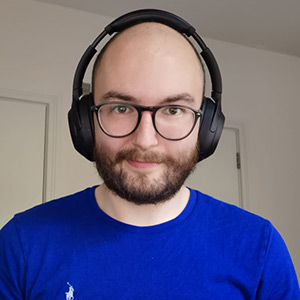Biography
Biography
Background
Ryan is a Cognitive and Developmental Neuroscientist whose work focuses on the development of functional activity in the developing brain. Ryan completed a BSc. (Hons). in Neuroscience and Psychology at Keele University in 2015, after which he completed an MSc. (Neuroimaging) and MRes. (Biomedical and Translational Science) at King's College London, where he is currently completing the final leg of his PhD in Developmental Neuroscience (Institute for Psychiatry, Psychology and Neuroscience; Department for Early Life Imaging, St. Thomas' Hospital).
Research Summary
Ryan's work leverages a range of neuroimaging methods including both offline and simultaneous functional magnetic resonance imaging (fMRI) and electroencephalography (EEG) in order to probe mechanisms underlying early brain development. His research has explored cross-sectional and longitudinal modelling of EEG neurodevelopmental proxies in order to understand how the developing brain matures. At Keele, Ryan is a postdoctoral researcher working under Dr Claire Monroy as part of the KiDS (Keele Interdisciplinary Developmental Science) lab, where he explores the neural mechanisms underlying differences in learning and language abilities between infants born deaf and typically developing infants.
Teaching, Outreach and Public Engagement
Ryan is also an Associate Fellow of the Higher Education Academy and Chair of the British Neuroscience Association's Content Board. He is a Visiting Lecturer at Queen Mary's University of London (Neuroscience), HP Lecturer at Nottingham Trent University (Psychology) and Graduate Teaching Assistant at King's College London (Neuroscience, Psychology, Medicine). Ryan is heavily involved with scientific outreach and public engagement, actively working for the BNA as Keele's Local Group Representative for Neuroscience (shared with Dr Chris Adams), is a member of the BNA's Accreditation Working Group (impacting national policy) and has demonstrated at New Scientist Live (2022,2023) and been part of the demonstration team for the BBC/Royal Institution Christmas Lectures (2023).
Mentoring and Supervision
Ryan is a keen mentor and early career advocate, and his work as part of the BNA and other organisations embodies these values. Ryan is open to mentoring and co-supervising undergraduate (BSc.) and graduate (MSc.) students and encourages those with an interest in the application of EEG/MRI to explore themes in developmental neuroscience/psychology (including neurodivergent conditions such as autism and ADHD) to get in contact.
School of Psychology
Dorothy Hodgkin Building
Keele University
Staffordshire
ST5 5BG
Psychology School office
Tel: +44(0)1782 731831
Fax: +44(0)1782 733387
Email: psychology@keele.ac.uk
Accessibility
Accessibility information for Dorothy Hodgkin Building can be found on its AccessAble page.


